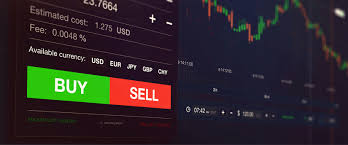Understanding Forex Trading Regulations A Guide for Traders 1598246172

Understanding Forex Trading Regulations: A Guide for Traders
The world of forex trading has grown significantly over the past few decades, attracting millions of traders globally. With its vast opportunities for profit, it is crucial for traders to understand the regulations that govern this market. Whether you are a seasoned trader or a beginner, knowing the rules and regulations can help you make informed decisions and protect your investments. Moreover, utilizing forex trading regulations Forex Trading Apps can keep you updated on regulatory changes and market trends conveniently.
Forex trading, or foreign exchange trading, involves the exchange of currency pairs in a global decentralized market. Unlike stock trading, forex operates 24 hours, five days a week. This continuous trading landscape necessitates a regulatory framework to safeguard both traders and the integrity of the market. The following sections explore the essential aspects of forex trading regulations, including their importance, key regulatory authorities, and the implications for traders.
The Importance of Forex Trading Regulations
Regulations in forex trading serve several vital purposes. First and foremost, they aim to protect traders from fraud and malpractice. The forex market can be susceptible to scams, given its decentralized nature and the availability of unregulated brokers. Regulatory agencies enforce standards that brokers must adhere to, ensuring that they operate fairly and transparently.
Furthermore, regulations foster trust and confidence in the forex market. When traders know that their brokers are regulated, they feel more secure in their transactions. This confidence encourages more participants to enter the market, leading to increased liquidity and overall market stability. Additionally, regulations are designed to ensure that brokers maintain adequate capital reserves, reducing the chance of broker bankruptcies and protecting traders’ funds.
Key Regulatory Authorities
Various regulatory bodies oversee the forex trading market, each operating within specific jurisdictions. Some of the most influential regulatory authorities include:
-
The Financial Conduct Authority (FCA) – United Kingdom
The FCA is one of the most recognized regulatory bodies, known for its stringent oversight of financial services. Forex brokers operating in the UK must adhere to FCA regulations, which include maintaining minimum capital requirements and implementing measures against market abuse.
-
The Commodity Futures Trading Commission (CFTC) – United States
The CFTC regulates the U.S. derivatives markets, including forex. It aims to protect traders against fraud, manipulation, and abusive practices in the trading arena.
-
The Australian Securities and Investments Commission (ASIC) – Australia
ASIC is known for its commitment to ensuring the integrity of the financial market, providing investor protection and regulating forex brokers within Australia.
-
The Cyprus Securities and Exchange Commission (CySEC) – Cyprus
CySEC has gained attention due to its regulatory framework that attracts many forex brokers. It provides a balance between regulatory oversight and operating flexibility for brokers.
Types of Regulations
Forex trading regulations can be classified into several categories:

Licensing Regulations
These regulations require forex brokers to obtain licenses from relevant authorities in their jurisdictions. Licensing ensures that brokers meet specific standards regarding financial practices, client fund segregation, and reporting requirements.
Consumer Protection Regulations
Regulatory bodies enforce measures that protect consumers from fraud. These measures may include compensation schemes, such as the Financial Services Compensation Scheme (FSCS) in the UK, which compensates traders in case a regulated broker goes bankrupt.
Anti-Money Laundering (AML) Regulations
Forex brokers are required to comply with AML regulations to avoid being used for illegal activities, such as money laundering or terrorist financing. Brokers must implement KYC (Know Your Customer) procedures to verify the identity of their clients.
The Impact of Regulations on Traders
Understanding the implications of forex trading regulations is fundamental for traders. Firstly, trading with a regulated broker provides a layer of security. Traders can trust that their broker follows ethical practices and complies with financial laws. It also means that traders are protected under compensation schemes if the broker fails financially.
However, regulations can also impact trading conditions. For example, regulated brokers may have stricter margin requirements, leading to lower leverage options for traders. While this can limit potential profits, it also reduces the risks of significant losses.
Moreover, compliance with regulations promotes responsible trading behavior. Traders are encouraged to engage in practices that manage risk and protect their capital, leading to a healthier trading environment overall.
Best Practices for Compliance
To ensure compliance with forex trading regulations, traders should consider the following best practices:
- Always choose regulated brokers: Verify the broker’s license and regulatory status before opening an account.
- Stay informed about regulatory updates: Follow news related to forex regulations to keep abreast of changes that may impact trading.
- Maintain accurate records: Keep detailed records of all transactions for accountability and transparency.
- Educate yourself on risk management: Understand the importance of managing leverage and capital to avoid excessive losses.
Conclusion
Navigating the forex trading landscape requires a solid understanding of the regulations that govern it. By staying informed and complying with relevant regulations, traders can safeguard their investments while potentially benefiting from the dynamic opportunities that the forex market offers. As the market continues to evolve, maintaining knowledge of regulatory standards will be crucial for both novice and experienced traders alike.


